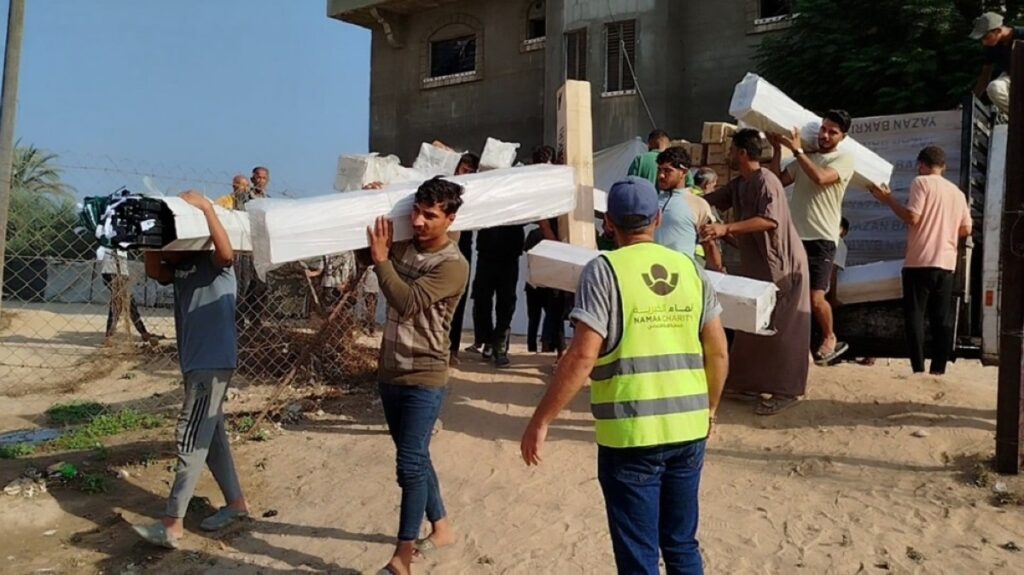KUWAIT: Kuwait’s Namaa Charity announced the implementation of the first phase of its relief project “For Gaza,” aimed at providing safe shelter for displaced families in northern Gaza by installing over 100 fully equipped tents in coordination with local institutions accredited by the Kuwaiti Ministry of Foreign Affairs. “The shelter project comes as an urgent response to the escalating humanitarian crisis in Gaza, where hundreds of thousands of families have lost their homes, marking one of the largest humanitarian disasters of the modern era,” said Saad Al-Otaibi, CEO of Namaa Charity, affiliated with the Social Reform Society.
Al-Otaibi cited UN reports, including those from the United Nations Office for the Coordination of Humanitarian Affairs and the United Nations Relief and Works Agency for Palestine Refugees in the Near East (UNRWA), noting that over 1.9 million people – approximately 85 percent of Gaza’s population – have been forcibly displaced, with more than half living outdoors. “Primitive tents provide little protection from the intense heat by day or the cold by night,” he said.
He added that more than 60 percent of residential facilities have been destroyed or severely damaged since the start of the war, making shelter one of the most urgent needs. Al-Otaibi emphasized that Namaa Charity, guided by its humanitarian and development mission, ensured that the project was implemented according to high relief standards through effective partnerships with accredited local institutions to guarantee transparency and maximum impact on the ground.
The installed tents in northern Gaza provide families with minimum safety and privacy, equipped with heat- and moisture-insulating materials, and include essential supplies such as blankets, mattresses and personal hygiene kits. The project is expected to expand to southern Gaza in future phases based on need. Al-Otaibi stressed that the shelter initiative is part of Namaa Charity’s integrated humanitarian vision, which also includes water, food, health and education programs to strengthen the resilience of affected communities. He acknowledged the support of Kuwait’s Ministry of Foreign Affairs and Ministry of Social Affairs in facilitating safe and organized access for Kuwaiti charities to affected areas.
Highlighting the collaboration between governmental and civil society efforts as a model for effective humanitarian work, Al-Otaibi expressed gratitude to Kuwait’s leadership. “We extend our deepest appreciation to His Highness the Amir Sheikh Meshal Al-Ahmad Al-Jaber Al-Sabah and His Highness the Crown Prince Sheikh Sabah Al-Khaled Al-Hamad Al-Sabah for their unwavering support of humanitarian initiatives,” he said. “From Kuwait to Gaza, the river of giving continues to restore life to those who have lost their homes, reaffirming Kuwait’s enduring role as a global center of humanitarian aid,” Al-Otaibi concluded. — KUNA

